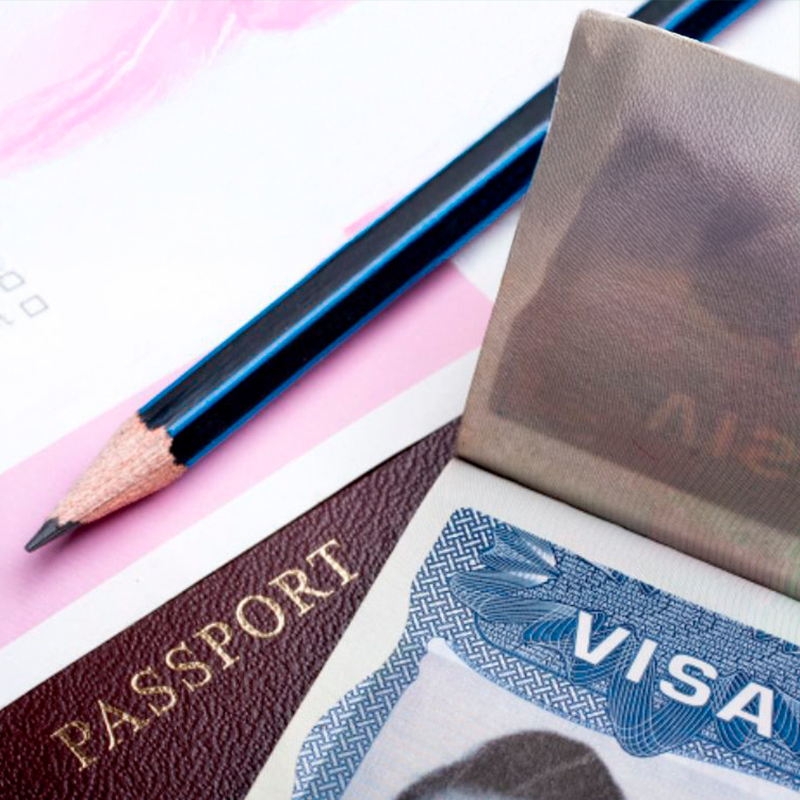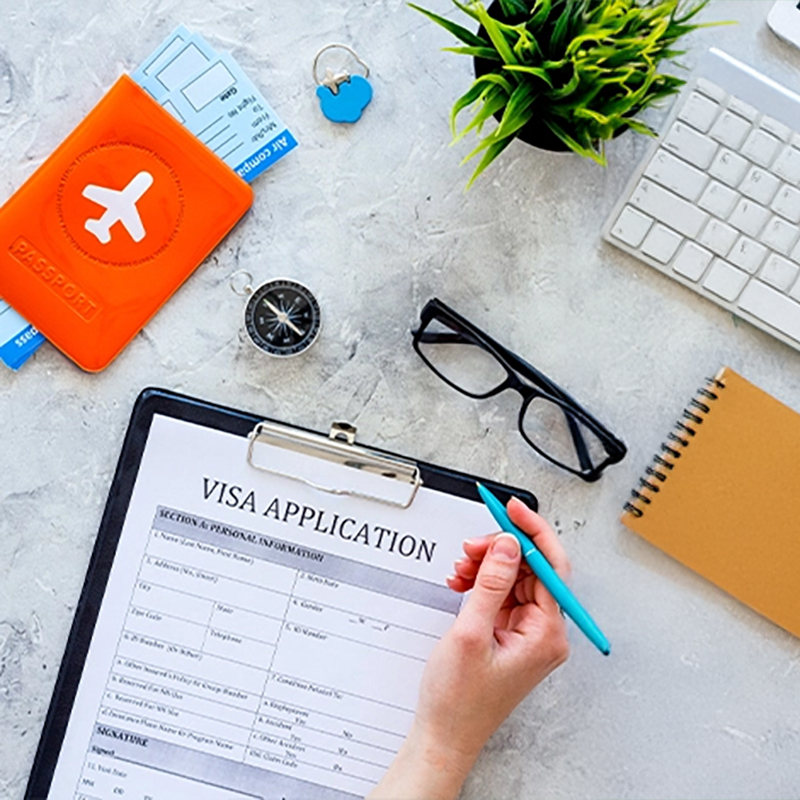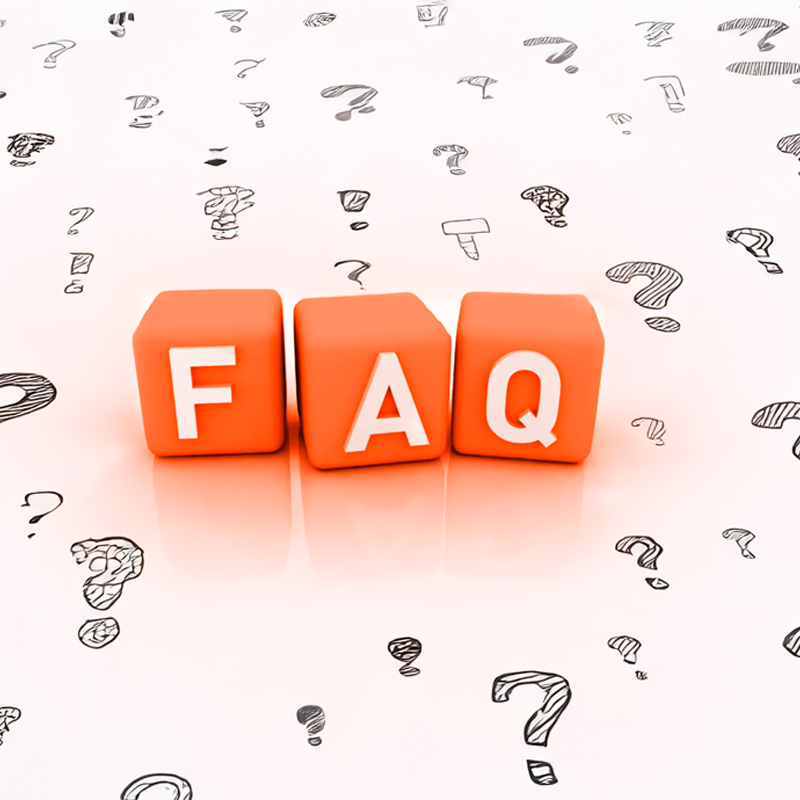Visa & Legal Information
What Colombia’s Legislation Says About Digital Nomad Visas
Visa “V” Digital Nomads
In a forward-thinking step to support the rise of digital nomadism, Colombia’s Ministry of Foreign Affairs launched the sought-after Digital Nomad Visa in October 2022, with its official availability beginning in January 2023.
This visa allows individuals to work remotely from Colombia—whether freelancing or employed—providing services through digital media and the Internet exclusively for foreign companies. It also opens doors for those interested in starting digital content or information technology ventures that could benefit the country.
Specific requirements:
- Be the holder of a passport issued by one of the countries or territories exempt from short-stay visas, according to the Resolution.
- Letter in Spanish or English, issued by one or more foreign companies for which the foreigner provides services, indicating the type of relationship and the type of remuneration that the applicant receives. If you have a contract with said company, provide it, or demonstrate that you are a partner or co-owner of a company abroad and a letter indicating that your work for the company is carried out remotely.
- In the case of entrepreneurs, submit a motivation letter explaining their entrepreneurial project and the financial and human resources they have or hope to have for their venture.
- Demonstrate through bank statements that you have a minimum income equivalent to three (3) Current Legal Monthly Minimum Wages ( SMLMV) during the last 3 months.
- Health policy with coverage in the national territory against all risks in case of accident, illness, maternity, disability, hospitalization, death or repatriation, for the duration of your stay in the country.
Validity: Up to two (2) years.
Beneficiaries: Applications are permitted for beneficiaries of the main holder.
Restrictions: This visa does not allow you to work or carry out paid activities with a legal or natural person domiciled in the national territory.
NOTE: Digital nomads, remote workers, and digital entrepreneurs of nationalities that do not require a short-stay visa, established by Resolution 5488 of 2022, may enter without a visa and remain in Colombia with an Entry Permit granted by the immigration authority, in accordance with current regulations; provided that their stay in the country does not generate payments from Colombian companies and their period of stay is not longer than 90 days, which may be extended up to a maximum of 180 continuous or discontinuous days per calendar year.

Digital Nomad Visa Application Process
The process to obtain a Digital Nomad Visa for Colombia can take up to 30 days and is completed online. Here are the steps involved:
Step 1: Check Eligibility
To qualify for the Digital Nomad Visa, you must meet specific requirements set by the Colombian government. These include holding a non-Colombian citizenship, providing proof of remote work, demonstrating sufficient financial resources, intending a temporary stay, and having no prior violations of Colombian immigration laws. This visa is available to citizens of select countries, including the United States, Canada, Portugal, Australia, Germany, and others.
Step 2: Gather Required Documents
Ensure you have all necessary paperwork, such as a valid passport, proof of remote work (e.g., employment letter), recent bank statements, health insurance, the visa application form, and passport-sized photos. Note that all documents may need to be translated into Spanish and certified.
Step 3: Submit Online Application
Once your documents are prepared, visit the website of the Ministry of Foreign Affairs to complete the online application form and upload the required documents.
Step 4: Pay Initial Fees
An application fee of around USD 50 must be paid on the website before you can submit the application.
Step 5: Wait for Processing
Allow time for your application to be processed. This can take a couple of weeks.
Step 6: Receive Approval
If your application is approved, you will receive a notification, either electronically or by mail.
Step 7: Get Your Visa
After approval, you will need to pay the visa fee, which ranges between USD 170 and USD 230. Once paid, your visa will be delivered electronically within 10 days.

Frequently Asked Questions about Digital Nomad Visas
Is it challenging to obtain a Digital Nomad Visa for Colombia?
As long as you meet all legal requirements, obtaining a Digital Nomad Visa for Colombia is straightforward. Factors such as your nationality, financial stability, purpose, and planned duration of stay all play a role. The application process is efficient and can be completed entirely online.
How much does a Colombia Digital Nomad Visa cost?
The total cost includes an application fee of USD 50, plus a visa fee, which ranges between USD 170 and USD 230 depending on whether you have dependents. Additional fees may apply for services like document preparation, professional assistance, and certification.
Can you extend a Digital Nomad Visa for Colombia?
Yes, it’s possible to extend your Colombia Digital Nomad Visa. Typically, this visa is granted for up to 2 years. If initially issued for a shorter period, such as 3 or 6 months, you may request an extension. With this visa, you’re allowed to stay in Colombia for a maximum of 180 days (or 6 months) within a single year.
What taxes apply with a Digital Nomad Visa in Colombia?
Foreign digital nomads residing in Colombia as non-residents are generally exempt from local taxes. However, income earned within Colombia’s borders may be subject to taxation. Your tax obligations depend on two main factors: your residency status and the source of your income. If you stay in Colombia for more than 183 days in a calendar year, you may transition to tax resident status, which could result in Colombian income tax liability on your global earnings.
What other visa options are available for foreigners interested in living and working in Colombia?
Beyond the Digital Nomad Visa, Colombia offers several alternative visas and residency options for foreign nationals:
- Business Owner or Investor Visa: Ideal for those looking to start a business or invest in Colombia. This visa requires a financial investment of at least COP 130,060,600 (approximately USD 33,100) and includes a requirement to generate jobs for Colombian citizens.
- Real Estate Investment Visa: For this visa, applicants must make a significant investment in Colombian real estate. The minimum required investment is COP 460,414,524 (around USD 117,100).
- Retirement Visa: Foreign nationals receiving retirement income from abroad can apply for a retirement visa. Eligibility requires a minimum pension of COP 3,901,818 (about USD 995) or a regular income of COP 13,006,060 (approximately USD 3,300).
- Freelancer Visa: This visa is available for foreign freelancers planning to work independently in Colombia, either remotely or on-site, as long as they earn at least COP 13,006,060 (around USD 3,300) per month.

Requirements for Opening a Bank Account in Colombia as a Foreigner
After researching the requirements at Colombia’s six largest banks, Bancolombia stands out as the most accommodating bank for digital nomads. While we’re not promoting any particular brand, our research shows that Bancolombia is the only major bank allowing account opening without needing a foreigner ID (cédula de extranjería)—you can simply use your passport. Bancolombia also offers the broadest national coverage and has a leading range of payment options, making it a convenient choice for digital nomads.
Bancolombia Savings Account Requirements
- In-person visit: The process must be completed at a Bancolombia branch.
- Passport or foreigner ID (optional): While the passport alone is sufficient, having a cédula de extranjería is also accepted.
- Second photo ID: An additional form of photo identification.
- For employed applicants: A letter from your employer stating the company name, your income, and length of employment.
- For students: A letter from your educational institution (school, institute, or university) confirming your enrollment and program duration.
- For freelancers: Documentation proving your self-employed status. Recommended documents include the last three bank statements and certification from your home country’s chamber of commerce or equivalent body, verifying your professional activity.
- More details available at: Bancolombia.com
Special Note for Venezuelan Citizens in Colombia
Through an agreement with the Financial Superintendency of Colombia, Venezuelan citizens can open a savings account by presenting either a Temporary Protection Permit (PPT) or a certificate from Migración Colombia verifying the permit process. This service is available even for minors.Other Banks in Colombia
- Grupo Aval Banks: Banco de Bogotá*, Banco de Occidente, and Banco Popular form the Grupo Aval network, offering extended coverage through interconnected ATMs and branches.
- BBVA: A well-known bank across Latin America and Spain, providing services for foreigners in Colombia.
- Davivienda: While Davivienda has an extensive ATM and branch network, it requires foreigners to have a minimum one-year residency and a cédula de extranjería.
*Unofficially, a representative from Banco de Bogotá informed us that the bank is allowing foreigners to open savings accounts without requiring a foreigner ID. If Banco de Bogotá suits your situation better than Bancolombia, feel free to visit one of their branches to inquire for more information.

Starting a Business in Colombia as a Foreigner
Colombia presents an exciting landscape for business, standing as one of South America’s largest and most diverse economies. With a population exceeding 52 million, Colombia offers a significant consumer base and strategic access to neighboring markets.
The nation has taken substantial steps to enhance its business environment, simplifying processes like company registration and property acquisition. Incentives for foreign investment are robust, with policies such as free trade zones and bilateral investment agreements. In fact, Colombia’s Business Confidence Index is projected to stay around 3.50 in 2024 and reach 5.00 by 2025.
While certain challenges like bureaucracy and security issues remain, Colombia’s continuous investments in infrastructure—especially in transportation and telecommunications—are steadily boosting connectivity. Additionally, its strategic location in South America provides easy access to both the Pacific and Atlantic, making Colombia a compelling trade hub with ample opportunities in sectors like agriculture and IT.
Key Advantages of Starting a Business in Colombia
Here are several reasons why setting up a business in Colombia could be a wise decision:
1. Thriving Economy
As Latin America’s fourth-largest economy, Colombia has experienced rapid growth, mainly through increased exports of commodities like oil, coal, and coffee. Services now account for 53% of GDP and represent the fastest-growing sector, spanning finance, insurance, business services, community services, trade, repairs, hospitality, and transportation. The real estate sector, too, has seen impressive growth, further driving Colombia’s dynamic economy.
2. Strategic Location
Positioned in South America, Colombia offers businesses seamless access to both North and South American markets. Its western coast opens to the Pacific Ocean, ideal for companies involved in international trade and shipping. Colombia is recognized globally as a prime location for Business Process Outsourcing (BPO) and Knowledge Process Outsourcing (KPO), with service exports surpassing USD 1.98 billion in 2022.
3. Trade Agreements
Colombia’s involvement in multiple free trade agreements, including the Pacific Alliance, grants businesses entry to a market of over 200 million consumers. Additionally, the United States-Colombia Trade Promotion Agreement strengthens economic cooperation between the two countries, enhancing bilateral commerce and fostering closer ties.
4. Skilled Workforce
Colombia boasts a well-educated, skilled workforce, especially in fields like technology, engineering, and finance. A strong focus on education and vocational training has led to a steady increase in STEM graduates (science, technology, engineering, and mathematics), showing remarkable growth over the past five years.
5. Investment Incentives
The Colombian government has rolled out various incentives to attract foreign investors, including tax benefits, free trade zones, and other financial perks. Colombia’s dedication to building an investment-friendly climate is reflected in its impressive track record, with Foreign Direct Investment reaching USD 5278.49 million in 2023.
6. Residency and Citizenship Options
Colombia provides a range of visa options for investors, including the Investment Visa (M-6 Visa) for those investing at least USD 33,000 in new or existing businesses. After five years, this visa can lead to permanent residency, allowing investors to establish a long-term presence. After ten years of residency, they may also become eligible for Colombian citizenship.
7. Tourism Growth
Colombia’s expanding tourism industry offers attractive prospects for businesses in hospitality, travel, and related sectors. Between 2024 and 2028, tourism is expected to contribute an additional USD 14.4 billion to the economy. This growth fuels demand in areas like food services, transportation, and cultural experiences, underscoring Colombia’s potential as a profitable investment destination.
8. Improving Stability and Security
While Colombia has faced security challenges historically, there has been notable progress in recent years. The overall environment has become safer, making Colombia a more secure place to do business. Ongoing efforts from both government and local communities continue to bolster security measures, ensuring a stable atmosphere for both investors and businesses.
9. Rich Natural Resources
Colombia is endowed with abundant natural resources, including oil, coal, gold, and emeralds, creating vast opportunities across numerous industries. Known for its valuable deposits of precious metals, particularly gold, Colombia’s mineral wealth is a cornerstone of its economy. As of August 2023, the country’s gold reserves were valued at USD 292,200,000.
10. Tax Benefits
Colombia offers competitive corporate tax rates compared to many other nations, presenting an appealing option for businesses seeking to optimize profits. Taxes on dividends and capital gains are kept at very manageable rates.
Tax Regulations for Foreign Enterprises Operating in Colombia
In Colombia, tax administration is managed by the National Directorate of Taxes and Customs (DIAN), an agency under the Ministry of Finance. DIAN plays a pivotal role in Colombia’s tax framework by overseeing the exchange rate regulations, supporting international trade activities, and managing all tax and customs operations, including tax collection, inspections, settlements, and refunds.
The tax residency of a company is generally based on the location where it is administered and controlled. Resident individuals and businesses in Colombia are subject to taxation on their worldwide income and assets. Non-resident individuals, foreign corporations, and foreign-owned companies with a permanent establishment in Colombia are taxed solely on their Colombian-source income.
For 2024, the standard tax rates applicable to foreign businesses are as follows:
Corporate Income Tax: 35%
Withholding Tax (on Dividends, Interest, Royalties, etc.): 20%
Value-Added Tax (VAT): 19%
Capital Gains Tax: 15%
Colombia has signed various double taxation treaties, which may offer reduced tax rates for entities from countries with such agreements.
The tax year in Colombia follows the calendar year (January through December). The deadline for submitting income tax returns is typically set for March 31 of the subsequent year.
Estimated Costs and Requirements for Establishing a Business in Colombia
Setting up a business in Colombia involves several essential steps and associated costs, which can vary depending on the business type, location, and scale. Below is an outline of the typical expenses and legal considerations for foreign entrepreneurs aiming to operate in Colombia.
Registration and Legal Fees
- Business Registration: To establish a business entity in Colombia, registration fees apply and may vary based on the structure chosen (such as sole proprietorship, partnership, or corporation). Generally, the registration fee is 0.7% of the total investment capital, with an additional mandatory charge of approximately USD 20.
- Minimum Capital Requirement: There is no mandated minimum capital requirement, providing flexibility for businesses of varying sizes.
- Notarial and Legal Services: Legal fees, including those for drafting contracts, formalizing documents, and notarial services, are essential for establishing a legitimate business. These fees typically start at around USD 2,500.
Licenses and Permits for Business Operations
The need for licenses and permits depends on the specific nature of the business. Fees start at approximately USD 1,500. Processing times and requirements for these permits can differ widely: while some licenses are straightforward, others, particularly those in specialized sectors or with environmental implications, may involve extensive inspections and additional documentation.
Banking Setup
Opening a corporate bank account in Colombia usually requires an initial deposit, the amount of which depends on the chosen bank and account type. Additional monthly or yearly maintenance fees may apply. Banking services, such as debit and credit card issuance, international transactions, and ATM use, may also incur fees. Generally, a minimum of USD 1,000 is needed to establish a corporate bank account.
Additional Operational Costs
Starting a business often involves other costs such as leasing or purchasing commercial space, utility expenses, equipment, supplies, salaries, and accounting services. Additionally, marketing efforts, including advertising and promotional activities, should be considered to help attract customers. Insurance costs for safeguarding business assets and liabilities are also common expenses to anticipate.
Key Legal Requirements for Foreign Nationals Establishing a Business in Colombia
Foreigners aiming to establish a business in Colombia must adhere to several legal prerequisites. Below are the primary steps involved:
1. Visa for Business Operations
A valid visa is required for foreign nationals managing or owning businesses in Colombia. The suitable visa type depends on the business’s nature and duration, with options such as a visitor visa, a digital nomad visa, or a migrant visa, depending on the intended level of business involvement and residency.
2. Business Name Registration
Before incorporation, companies must obtain official approval for their chosen business name. The name approval process is efficient but requires adherence to these standards:
- Uniqueness: The name should be distinct and must not closely resemble that of any other existing business.
- Availability: The proposed name should not already be reserved or registered by another individual or entity.
- Trademark Compliance: The name must not infringe on existing trademarks or copyrights held by others.
- Appropriateness: The name must maintain a level of decency, avoiding any inappropriate or offensive language.
3. Defining the Legal Structure
Businesses must determine and formalize their legal structure—be it a corporation, partnership, or simplified stock company—and register it with the Colombian Chamber of Commerce.
4. Directors and Management Requirements
Specific requirements exist for directors and management based on the business structure. For instance, a partnership requires at least two partners, corporations require five shareholders, limited liability companies need a minimum of two partners, and simplified stock companies require at least one shareholder.
5. Bank Account and Financial Reporting
Businesses must open a corporate bank account within Colombia and implement standard financial reporting practices to comply with regulatory obligations and ensure transparent accounting.
6. Licensing and Protection of Intellectual Property
Businesses are often required to secure relevant permits or licenses depending on the industry. These could be at a local, regional, or national level. For businesses dealing with intellectual property—such as trademarks, patents, or copyrights—protecting these assets should be considered part of the operational setup.
Step-by-Step Guide to Company Registration in Colombia
Registering a company in Colombia typically takes around 3-4 weeks and can be completed remotely with a Power of Attorney. Below is a streamlined guide to the essential steps:
Step 1: Selecting a Business Structure
Choosing the right legal structure is foundational for your business’s operations in Colombia. Common structures include the Simplified Stock Company (SAS), Corporation (S.A.), and Limited Liability Company (SRL). Each structure offers unique advantages in terms of ownership, liability, and governance.
Step 2: Confirm Name Availability
Ensuring that your company’s name is both appropriate and unique is critical. A thorough search is advised to confirm that no other entity is using a similar name. This involves checking the national business registry and any relevant local or municipal databases. The company name must then be registered in the Single Business Register.
Step 3: Draft Articles of Incorporation
Next, prepare the Articles of Incorporation (Escritura de Constitución), which outlines your business’s purpose, structure, and operational guidelines. This document should provide a clear description of the company’s objectives, including the specific products or services it will offer.
Step 4: Register with the Chamber of Commerce
Submit your registration documents to the Chamber of Commerce, including the Articles of Incorporation, identification of the appointed legal representative, and proof of payment for registration fees. This step ensures your business’s compliance with local administrative requirements.
Step 5: Obtain a Tax Identification Number (NIT)
After incorporation, you must secure a Tax Identification Number (Número de Identificación Tributaria or NIT) from the Colombian Tax Authority (DIAN). The NIT is essential for conducting business activities in Colombia, ensuring compliance with tax regulations, and enabling accurate reporting.
Step 6: Open a Corporate Bank Account
With your NIT and relevant documents, proceed to open a business bank account. Some banks known for accessible customer service include Banco de Colombia, BBVA, Banco de Bogotá and Davivienda.


